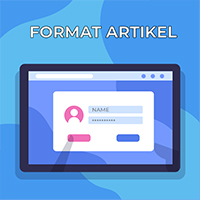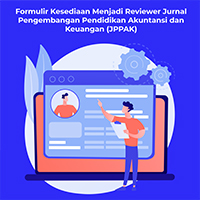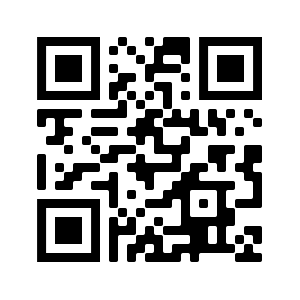HUBUNGAN ANTARA LITERASI DIGITAL DENGAN SELF-REGULATED LEARNING DI MASA PANDEMI COVID-19 PADA MAHASISWA
Abstract
ABSTRACT
The research aims to examine the correlation between digital literacy with self-regulated learning during the covid-19 pandemic period of students. This research is used correlational quantitative method. The samples of the research are 148 students who are taken by proportionate stratified random sampling method. The method of collecting the data is used questionnaire. The method of analyzing the data is used correlation test and simple regression test. The results of the research showed that there was a positive and significant correlation between digital literacy with self-regulated learning during the pandemic. It was evidenced by: (1) simple correlation test results showed (rstat. = 0,478 > rtable = 0,1603) and a significance value of less than 0.05 (0.000 > 0.05). (2) the regression analysis with the equation model Y=22,414 + 0,425X were statistically significant with tstats. = 6,582 > ttable = 1,976, and significant value = 0.000 > 0.05. (3) the coefficient of determination (R2) of 22.9% showed that the digital literacy had an effect of 22.9% on self-regulated learning variables during the covid-19 pandemic period of students.
Keywords: Digital Literacy, Self-Regulated Learning, Covid-19 Pandemic
ABSTRAK
Penelitian ini bertujuan untuk mengetahui hubungan antara literasi digital dengan self-regulated learning di masa pandemi covid-19 pada mahasiswa. Metode penelitian yang digunakan adalah kuantitatif korelasional. Sampel dalam penelitian ini sebanyak 148 mahasiswa yang diambil dengan metode proportionate stratified random sampling. Teknik pengumpulan data menggunakan kuesioner. Analisis data penelitian ini menggunakan uji korelasi dan uji regresi sederhana. Hasil penelitian menunjukkan bahwa terdapat hubungan positif yang signifikan antara literasi digital dengan self-regulated learning di masa pandemi. Hal ini dibuktikan dengan: (1) hasil uji korelasi sederhana menunjukkan (rhitung = 0,478 > rtabel = 0,1603) dan nilai signifikansi kurang dari 0,05 (0,000 < 0,05). (2) model persamaan Y= 22,414 + 0,425X signifikan secara statistik dengan nilai thitung = 6,582 > ttabel = 1,976, dan nilai signifikansi = 0,000 < 0,05. (3) koefisien determinasi (R2) sebesar 22,9% berarti variabel literasi digital memberikan pengaruh sebesar 22,9% terhadap variabel self-regulated learning di masa pandemi covid-19 pada mahasiswa.
Kata Kunci: Literasi Digital, Self-Regulated Learning, Pandemi Covid-19
Full Text:
PDFReferences
American Library Association. (2013). Digital literacy, libraries, and public policy. Washington, D.C: Press Officer
Anas, A. (2020, 16 September). Mewujudkan siswa yang mampu belajar secara mandiri. Acehtrend.com. Diperoleh 20 September 2020, dari https://www.acehtrend.com/2020/09/16/mewujudkan-siswa-yang-mampu-belajar-secara-mandiri/
Atkins, L., Fraser, J., & Hall, R. (2013). DigiLit Leicester: 2013 Survey Results. Leicester: Leicester City Council.
Badjeber, R. (2020). Kemandirian Belajar Mahasiswa Tadris Matematika FTIK IAIN Palu Selama Masa Pembelajaran Daring. Koordinat:Jurnal Pendidikan Matematika dan Sains, 1 (1), 1-9. Diperoleh 12 September 2020, dari http://jurnalkoordinat.org/index.php/koordinat/article/view/1/1
Beetham, H., McGill, L., & Littlejohn, A. (2009). Thriving in the 21st Century: The Report of the LLiDA Project (Learning Literacies for the Digital Age). A JISC funded study, 1-84. Diperoleh 18 April 2020, dari https://www.researchgate.net
Elpira, B. (2018). Pengaruh Penerapan Literasi Digital Terhadap Peningkatan Pembelajaran Siswa di SMP Negeri 6 Banda Aceh. Skripsi Tidak Dipublikasikan, Universitas Islam Negeri Ar-Raniry.
Eshet & Alkalai. (2004). Digital Literacy: A Conceptual Framework for Survival Skills in The Digital Era. Journal of Educational Multimedia and Hypermedia, 13 (1), 93-106. Diperoleh 14 Desember 2020, dari https://www.learntechlib.org/primary/p/4793/.
Goh, T., Seet, B., & Chen, N. (2012). The Impact of Persuasive SMS on Students’ Self-Regulated Learning: The Impact of Persuasive SMS on Students’ Self-Regulated Learning. British Journal of Educational Technology, 43 (4), 624–640. Diperoleh 05 Mei 2020, dari https:onlinelibrary.wiley.com/doi/abs/10.1111/j.1467-8535.201101236.x
Greene, J.A., & Yu, S.B., & Copeland, D.Z. (2014). Measuring critical components of digital literacy and their relationships with learning. Computers & Education, 76, 55-69. Diperoleh 25 April 2020, dari http://dx.doi.org/10.1016/j.compedu.2014.03.008
Hanik, E.U. (2020). Self-Directed Learning Berbasis Literasi Digital Pada Masa Pandemi Covid-19 di Madrasah Ibtidaiyah. Elementary Islamic Teacher Journal, 8 (1), 183-208. Diperoleh 10 Juni 2020, dari http://journal.iainkudus.ac.id/index.php/elementary
Harahap, A.C.P., & Harahap, S.R. (2020). Covid 19: Self Regulated Learning Mahasiswa. Jurnal Pendidikan dan Konseling, 10 (1), 36-42. Diperoleh 08 Juli 2020, dari http://jurnal.uinsu.ac.id/index.php/al-irsyad
Hasanah, U.U., & Setiaji, K. (2019). Pengaruh Literasi Digital, Efikasi Diri, Lingkungan Terhadap Intensi Berwirausaha Mahasiswa Dalam E-Business. Economic Education Analysis Journal, 8 (3), 1198-1215. Diperoleh 15 April 2020, dari https://journal.unnes.ac.id/sju/index.php/eeaj
Herliandry, L.D., Nurhasanah., Suban, M.E., & Kuswanto, H. (2020). Pembelajaran Pada Masa Pandemi Covid-19. Jurnal Teknologi Pendidikan, 22 (1), 65-70. Diperoleh 10 Juni 2020, dari DOI:https://doi.org/10. 21009/jtp.v22i1.15286
Jehanum, P. (2020, 26 April). Dilema Pembelajaran Dalam Jaringan (Daring) Pada Masa Pandemi Covid-19. Bernasnews.com. Diperoleh 27 Agustus 2020, dari https://bernasnews.com/dilema-pembelajaran-dalam-jaringan-daring-pada-masa-pandemi-covid-19/
Junaedi, F. (2020, 10 April). Belajar Daring saat Pandemi, Perlunya Pendidikan Karakter dan Kebijakan. Timesindonesia.co.id. Diperoleh 12 September 2020, dari www.google.com/amp/s/amp.timesindonesia.co.id/read/mews/263666/belajar-daring-saat-pandemi-perlunya-pendidikan-karakter-dan-kebijakan?espv=1
Kementerian Pendidikan dan Kebudayaan. (2017). Peraturan Presiden Republik Indonesia Nomor 87 Tahun 2017 tentang Penguatan Pendidikan Karakter. Diperoleh 05 Mei 2020, dari setkab.go.id
Khairudin, Suryani, K., Fauzan, A., & Armiati. (2020). Self-Regulated Learning of Mathematics Education Students of Bung Hatta University. Journals of Physics: Conference Series, 1429. Diperoleh 26 Agustus 2020, dari doi:10.1088/1742-6596/1429/1/012003
Kristiyani, T. (2016). Self-Regulated Learning: Konsep, Implikasi, dan Tantangannya Bagi Siswa di Indonesia. Yogyakarta: Sanata Dharma University Press.
Latifah, K. (2018). Digital Literasi dan Self Directed Learning dalam Pembelajaran Mahasiswa PBI IAIN Surakarta. Academica: Journal of Multidisplinary Studies, 2 (1), 159-167. Diperoleh 15 April 2020, dari http://ejournal.iainsurakarta.ac.id/index.php/academica/article/view/2247
Latip, A. (2020). Peran Literasi Teknologi Informasi dan Komunikasi Pada Pembelajaran Jarak Jauh di Masa Pandemi Covid-19. EduTeach: Jurnal Edukasi dan Teknologi Pembelajaran, 1 (2), 107-115. Diperoleh 10 Juni 2020, dari http://ejurnal.umri.ac.id/index.php/eduteach/article/view/1956
Magno, C. (2011). Validating The Academic Self-Regulated Learning Scale With The Motivated Strategies for Learning Questionnaire (MSLQ) and Learning and Study Strategies Inventory (LASSI). The International Journal of Educational and Psychological Assessment, 7 (2), 56-73. Diperoleh 24 April 2020, dari https://papers.ssrn.com/sol3/papers.cfm?abstract_id=2287180
Miftahuddin. (2020, 22 Juni). Keharusan Baru Pendidikan di Masa Kenormalan Baru. SuaraMerdeka.com. Diperoleh 27 Agustus 2020, dari https://www.suaramerdeka.com/news/opini/232212-keharusan-baru-pendidikan-di-masa-kenormalan-baru
Muthupoltotage, P.U., & Gardner, L. (2018). Analysing the Relationships Between Digital Literacy and Self-Regulated Learning of Undergraduates-A Preliminary Investigation. Lecture Notes in Information Systems and Organisation, 26, 1-16. Diperoleh 25 April 2020, dari https://doi.org/10.1007/978-3-319-74817-7_1
. (2018). Digital Literacy and Self-Regulated Learning: Testing Reciprocal Relationships with Longitudinal Data. Americas Conference on Information Systems 2018: Digital Disruption, AMCIS 2018, 1-10. United States: Hyatt Regency New Orleans.
Ng, W. (2012). Can we teach digital natives digital literacy?. Computers & Education, 59 (3), 1065-1078. Diperoleh 25 April 2020, dari https://doi.org/10.1016/j.compedu.2012.04.016.
Perera, M.U., Gardner, L., & Peiris, A. (2016). Investigating the Interrelationship between Undergraduates’ Digital Literacy and Self-Regulated Learning Skills. International Conference on Information Systems-ICIS 2016, 1-13. Dublin: Ireland.
Pintrich, P. (2000). The Role of Goal Orientation in Self-Regulated Learning. Handbook Paul Pintrich, 451-529. Diperoleh 13 Desember 2020, dari http://cachesan.bcub.ro/e-book/E1/580704/451-529.
Prior, D.D., Mazanov, J., Meacheam, D., Heaslip, G., Hanson, J. (2016). Attitude, Digital Literacy and Self Efficacy: Flow-on Effects for Online Learning Behaviour. Internet and Higher Education, 29, 91-97.
Diperoleh 22 April 2020, dari http://dx.doi.org/10.1016/j.iheduc.2016.01.001
Risdianto, E. (2019). Analisis Pendidikan Indonesia di Era Revolusi Industri 4.0. Diperoleh pada 07 Juli 2020, dari https://www.researchgate.net/
Rohmah, N. (2019). Literasi Digital Untuk Peningkatan Kompetensi Guru di Era Revolusi Industri 4.0. Jurnal PGMI, 2 (2), 128-134. Diperoleh 15 April 2020, dari http://ejournal.iai-tabah.ac.id/index.php/awaliyah/view/448
Salter, P. (2013). Helping or Hindering? Technology’s Impact on Secondary Students’ Self-Regulated Learning. In J.Herrington, A. Couros & V.Irvine (Eds.). Proceedings of Edmedia 2013-World Conference on Educational Multimedia, Hypermedia and Telecommunications, hlm 2271–2280. Victoria, Canada: Association for the Advancement of Computing in Education (AACE).
Sekarini, D.A. (2019). Hubungan Antara Literasi Teknologi dan Kemandirian Belajar Siswa Kelas IX di SMP N 5 Cilacap Tahun Ajaran 2018/2019. Skripsi Tidak Dipublikasikan, Universitas Negeri Semarang.
Sobri, M., Nursaptini, & Novitasari, S. (2020). Mewujudkan Kemandirian Belajar Melalui Pembelajaran Berbasis Daring di Perguruan Tinggi Pada Era Industri 4.0. Jurnal Pendidikan Glasser, 4 (1), 64-71. Diperoleh 08 Juli 2020, dari doi:http://10.32529/glasser.v4i1.373
Statti, A., & Torres, K.M. (2020). Digital Literacy: The Need for Technology Integration and Its Impact on Learning and Engagement in Community School Environments. Peabody Journal of Education, 95 (1), 90-100. Diperoleh 25 April 2020, dari doi: 10.1080/0161956X.2019.1702426
Steiner, C. M., Wesiak, G., Moore, A., Conlan, O., Dagger, D., Donohoe, G., & Albert, D. (2013). An Investigation of Successful Self-Regulated-Learning in a Technology-Enhanced Learning Environment. AIED 2013 Workshops Proceeding, 10-19. USA: Memphis.
Sulisworo, D., Fatimah, N., Sunaryati, S.S., & Sanidi. (2020). A quick study on SRL profiles of online learning participants during the anticipation of the spread of Covid-19. International Journal of Evaluation and Research in Education (IJERE), 9 (3), 723-730. Diperoleh 03 Oktober 2020, dari DOI: 10.11591/ijere.v9i3.20642
Techataweewan, W., & Prasertsin, U. (2018). Development of digital literacy indicators for Thai undergraduate student using mixed method research. Kasetsart Journal of Social Sciences, 39, 215-221. Diperoleh 23 April 2020, dari http://dx.doi.org/10.1016/j.kjss.2017.07.001
Umar, Hendra, & Jayanti, M.I. (2019). Tingkat Literasi Digital Mahasiswa Keguruan Dalam Menghadapi Era Revolusi Industri 4.0. Tajdid: Jurnal Pemikiran Keislaman dan Kemanusiaan, 3 (2), 188-202. Diperoleh 15 April 2020, dari http://ejournal.iaimbima.ac.id/index.php/tajdid/article/view/295
Utama, C., Sajidan., Nurkamto, J., & Wiranto. (2020). Digital Literacy as a Daily Activity: Preferences of the Main Functions of Technology. Universal Journal of Educational Research, 8 (3D), 39-46. Diperoleh 24 April 2020, dari doi:10.13189/ujer.2020.081706.
Woolfolk, A. (2005). Educational psychology. Active learning edition. Boston, MA: Allyn & Bacon.
Yang, M., and Kim, J. (2014). Correlation between Digital Literacy and Self-Regulated Learning Skills of Learners in University E-Learning Environment. Advanced Science and Technology Letters, 71, 80–83. Diperoleh 25 April 2020, dari pdfs.semanticscholar.org
Yot-Domínguez, C., and Marcelo, C. (2017). University Students’ Self-Regulated Learning Using Digital Technologies. International Journal of Educational Technology in Higher Education, 14 (1), 38. Diperoleh 05 Mei 2020, dari https://link.springer.com/article/10.1186/s41239-017-0076-8
Zimmerman, B.J. (1989). A Social Cognitive View of Self-Regulated Academic Learning. Journal of Educational Psychology, 81, 329-339. Diperoleh 05 Mei 2020, dari https://psycnet.apa.org/record/1990-06085-001
Zimmerman, B.J., & Schunk, D.H. (1998). Self-regulated Learning: From Teaching to Self-Reflective Practice. New York: Guilford.
DOI: https://doi.org/10.20961/jppak.v1i2.59254
Refbacks
- There are currently no refbacks.

|


2.png)



4.png)



